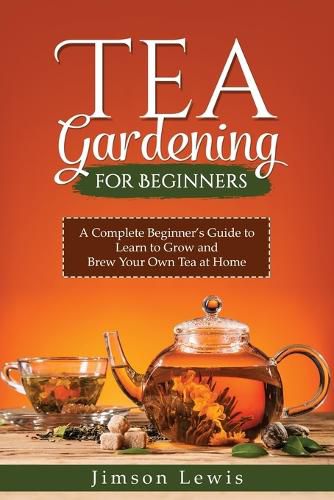Readings Newsletter
Become a Readings Member to make your shopping experience even easier.
Sign in or sign up for free!
You’re not far away from qualifying for FREE standard shipping within Australia
You’ve qualified for FREE standard shipping within Australia
The cart is loading…






This title is printed to order. This book may have been self-published. If so, we cannot guarantee the quality of the content. In the main most books will have gone through the editing process however some may not. We therefore suggest that you be aware of this before ordering this book. If in doubt check either the author or publisher’s details as we are unable to accept any returns unless they are faulty. Please contact us if you have any questions.
Tea gardening has a rich history and cultural background. According to historical evidence, tea drinking became a daily habit in the 3rd century CE. However, the plants used were grown for medicinal purposes long before that. Tea cultivation has laid the foundation for modern medicine. Yet, the traditional methods of preparing healing drinks from these plants haven't been lost either. As you'll learn from this guidebook, growing tea is one of the easiest ways to learn the basics of gardening.
Before you begin planting your garden, you'll need to familiarize yourself with the basics of tea farming. This book will list all the tools you need for planting, growing, harvesting, and preparing tea. You'll learn that teas require specific growing conditions, including soil and agro-climatic conditions. Depending on the amount of space you have, you'll need to decide where to establish your garden. This will also affect which species and varieties you'll be able to grow.
There is a wide range of tea species you can grow at home. There are chapters dedicated to giving you a list of recommended teas, as well as plenty of practical instructions on how to plant them, and for beginners, we've listed a number of easy-to-grow herbs and their purposes. You'll also learn how to identify diseased plants and what to do about them. Once your herbs have matured, you can refer to the harvesting instructions for safe, long-term preservation.
$9.00 standard shipping within Australia
FREE standard shipping within Australia for orders over $100.00
Express & International shipping calculated at checkout
This title is printed to order. This book may have been self-published. If so, we cannot guarantee the quality of the content. In the main most books will have gone through the editing process however some may not. We therefore suggest that you be aware of this before ordering this book. If in doubt check either the author or publisher’s details as we are unable to accept any returns unless they are faulty. Please contact us if you have any questions.
Tea gardening has a rich history and cultural background. According to historical evidence, tea drinking became a daily habit in the 3rd century CE. However, the plants used were grown for medicinal purposes long before that. Tea cultivation has laid the foundation for modern medicine. Yet, the traditional methods of preparing healing drinks from these plants haven't been lost either. As you'll learn from this guidebook, growing tea is one of the easiest ways to learn the basics of gardening.
Before you begin planting your garden, you'll need to familiarize yourself with the basics of tea farming. This book will list all the tools you need for planting, growing, harvesting, and preparing tea. You'll learn that teas require specific growing conditions, including soil and agro-climatic conditions. Depending on the amount of space you have, you'll need to decide where to establish your garden. This will also affect which species and varieties you'll be able to grow.
There is a wide range of tea species you can grow at home. There are chapters dedicated to giving you a list of recommended teas, as well as plenty of practical instructions on how to plant them, and for beginners, we've listed a number of easy-to-grow herbs and their purposes. You'll also learn how to identify diseased plants and what to do about them. Once your herbs have matured, you can refer to the harvesting instructions for safe, long-term preservation.